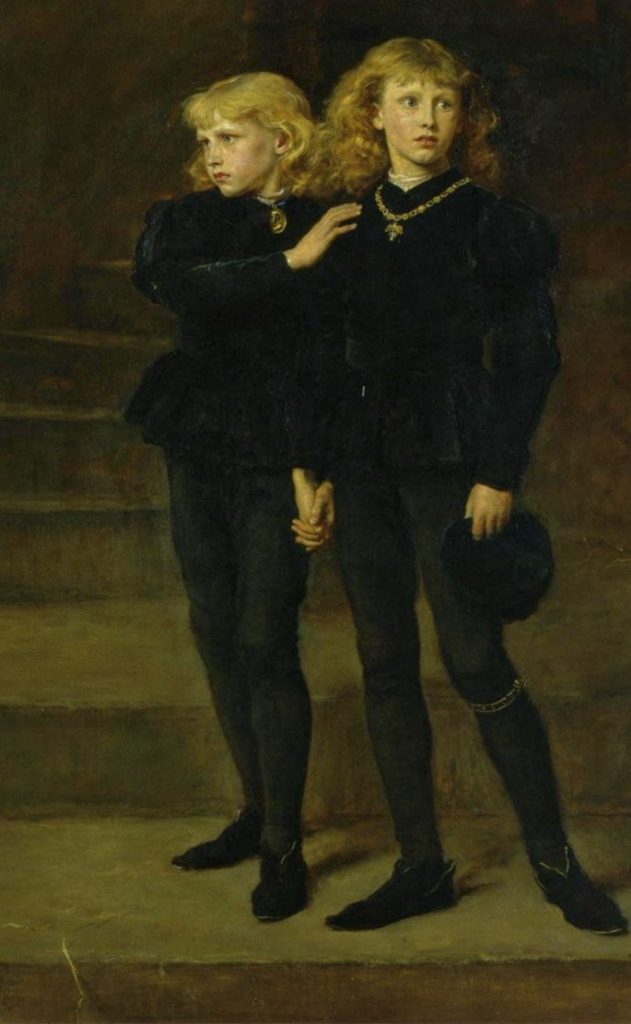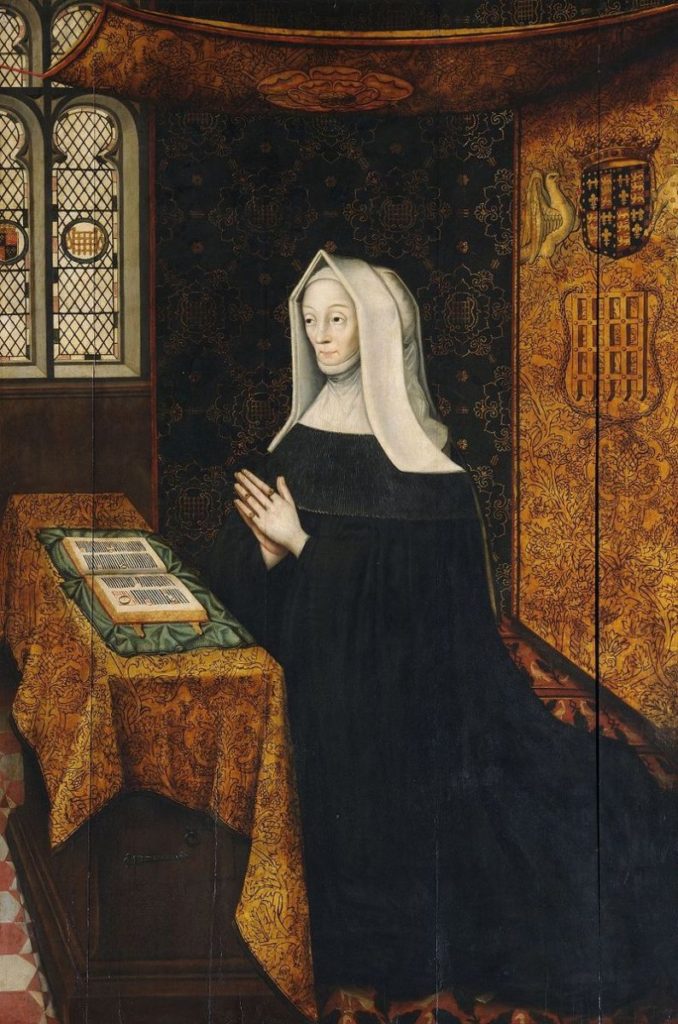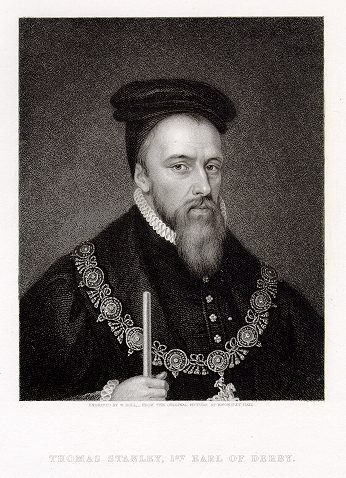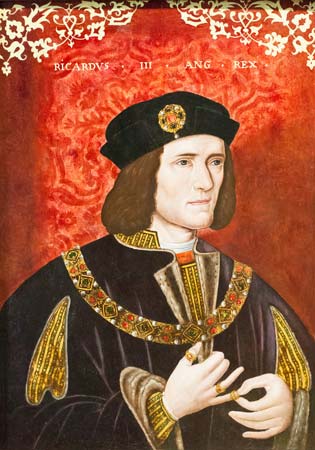

About seven years ago I started properly thinking about who killed the Princes in the Tower. I had no bias toward or against any candidate. But I quickly decided that Richard was the most likely perpetrator.
Four years ago I started blogging about my obsession and engaging with other Royal History Geeks online. I learnt how many people held Margaret Beaufort, mother of Henry VII, responsible for the murder of Edward V and his brother, Richard, Duke of York. The Tudor matriarch had never emerged as a meaningful candidate in the books and primary sources I had studied. I was soon to learn that social media follows a different set of rules to scholars.
When it comes to history, we are all entitled to our own opinions. But are we entitled to our own facts? The people we are talking about really lived. Should we make claims about their misbehaviour without robust evidence? We surely wouldn’t if these were people we actually knew.
When it comes to historical fiction, I understand that license must be taken. History is about recognising different perspectives and understanding motivations in their context. Stories must feature heroes and villains. But where things have to be invented in order to make these narratives flow, authors should be clear about what they have done.
There are a host of reasons why a link between Margaret Beaufort and the death of the Princes in the Tower should be discounted. Here are just six of them.
- She didn’t have access
Before we go any further, we have to acknowledge the level of security around the Princes after Richard got his hands on both of them. He had the Princes in a high-security prison within the Tower of London. This claim is relatively uncontroversial. We can be clear on it without relying on the Tudor sources which many find so sinister.
Mancini, the Italian writer visiting London, tells us that “all the attendants who had waited upon the King [Edward V] were debarred access to him. He and his brother were withdrawn into the inner departments of the Tower proper, and day by day began to be seen more rarely behind the bars and windows, till at length they ceased to appear altogether.”
The Croyland Chronicle recounts that the Princes were put in the custody of “certain persons appointed to that purpose.” They would have been men Richard trusted greatly.
Assuming that the boys died in 1483, how would Margaret or an agent acting on her behalf have gained access to them?
2. Her husband didn’t have access
Margaret is often thought to have a co-conspirator in the form of her husband, Thomas, Lord Stanley. Proponents of this theory point out that he was the Constable of England. Surely that position would have helped him get near to the boys, wouldn’t it?
Stanley, however, was not appointed Constable of England until after the Princes were probably dead. And even if they were still alive, there is nothing to suggest that this office would have granted him proximity to them. As we have seen, the boys were not simply roaming around the tower. They had been withdrawn to an inner apartment and guarded by men close to Richard.
Stanley was not part of Richard’s inner circle. While he had been appointed to high office, this reflects that Richard needed to ensure he kept a major regional power broker on side as his reign became fractious. Bestowing such an office did not necessarily convey trust. For example, George Duke of Clarence held the similar office of Lord High Steward during a time that he was at loggerheads with his brother, Edward IV.

3. Margaret had nothing to offer Richard’s guards
No one’s loyalty can be guaranteed. It is sometimes said that, while the Princes were guarded by Richard’s most trusted men, perhaps Margaret could have bribed them. She was, after all, rather wealthy.
I’ve written elsewhere about the wealth of Margaret Beaufort. It was certainly substantial. But it was not enough to make her a major power broker of the realm. And what could she possibly have offered these men which would have been superior to the benefits that service to the king could bring? Besides, these men knew that if they let anything happen to the king’s nephews, under the orders of anyone but Richard, they would answer for it with their heads.
4. Richard never accused Margaret or Stanley of it
In the highly unlikely event that Margaret had gained access to the Princes and had them killed, Richard would have found out about it straight away. Wouldn’t this have been a dream come true for the king? His biggest rivals would have been eliminated. Yet, there wouldn’t have been a trace of blood on his hands. He could pin the blame on Margaret and Stanley.
5. It’s not clear that Margaret even had a motive
Once it was believed the Princes were dead, those loyal to Edward IV searched for a new champion. Margaret’s son, Henry Tudor was the man they eventually turned their attention to – on the condition that he would marry Elizabeth of York, sister of the Princes. But could such an eventuality really have been predicted? People could just have easily turned to the young earl of Warwick, the Duke of Buckingham or anyone who was free to marry Elizabeth.
To believe that Margaret could have masterminded such as set of circumstances credits her with a greater gift of prophecy than is realistic.

6. After 1485, it wouldn’t have been Margaret giving the orders
Some speculate that when Henry VII arrived in England, he found the boys in the tower and had them done away with. Was it Margaret that was whispering in his ear and persuading him to do so?
It is highly unlikely that the Princes were still alive in 1485. Had they been, surely Richard would have produced them. Doing so would split the coalition of Lancastrian remnants and Yorkist dissidents that had formed against him. However, if they had survived, and their death was ordered by Henry VII, it seems odd to lay the blame for this at Margaret’s door. Henry would have been the one to give the orders.
It is true that Henry trusted the advice of his mother. This may have been particularly the case in the early weeks of his reign as there were few in England he could trust. But to suggests that he was some kind of puppet King that allowed anyone else to pull the strings misunderstands his entire approach to kingship. Besides, even if killing the Princes was Margaret’s idea, it would have been Henry that gave the order.
Subscribe to our newsletter!
I suggest you read ‘TheSurvival of the Princes in the Tower’ by Matthew Lewis and any book by Annette Carson.
Thanks – it is on my list.
I would take anything by Carson with a pinch of salt. Indeed, a teaspoon. She’s a fanatical Ricardian who engages in some wild speculations. In one of her books she argues that Elizabeth Woodville poisoned her husband, because people don’t just die of food poisoning.
Except, they do. Ms Carson is seemingly completely ignorant of medical and biological facts, and the reality that something as simple as food poisoning could easily have killed a healthy man in the 15th century. Living has he did before the discovery of antibiotics.
Matthew Lewis book bases arguments on, among other things, supposed secret codes hidden in painting. It’s pop history worthy of the Da Vinci Code.
No doubt Diane Penn (another fantical Ricardian ) means well, and intends to convert you to the right path by recommending you read some good Ricardian propaganda, sorry, books.
A bad way to argue, to call the people who don’t share your opinion, “fanatics”, and book recommended by them a “propaganda”. Not a pleasant style of discussion, really. The page’s owner’s manner is much better.
I suggest you re read Matthew and Annette’s books again! Annette gives the poisoning story as a ‘THEORY’ suggested by R.E.Collins and makes it completely plain that it IS a theory – amongst others put forward.
Matthew’s ‘secret codes’ are what was suggested by Jack Leslau some years ago and being as it is a well known fact that there were secret codes used in this way (as learnt by attending Art History lectures at University) Matthew has brought it to our attention. For those who would like to read this for themselves and not be so dismissive of others thoughts and ideas, here is the link (there are others if you care to google ‘Jack Leslau: https://www.google.co.uk/amp/s/mattlewisauthor.wordpress.com/2014/07/26/leslau-holbein-more-and-clement/amp/
On another note… please do not insult me while hiding behind a bland, anonymous name. I at least use my real name. I am not a ‘fanatic’ at all but just interested in why certain people cling to the ridiculous and sometimes laughable Shakespearean and More myths instead of reading actual documents and contemporary records. In the 47 years I have been reading about Richard I have not come across anything to change my mind or be blinded by Tudor’s blatant spin. Why was Tudor so insecure as to destroy as many previous papers as he could?
Contrary to your belief, Ms Carson’s books are informative and extremely well researched. She is very well respected. I think you should apply your criticism to the likes of Hicks who backs up his opinions with fairy tales.
And, of course, Beaufort is a suspect. Those Saints knees weren’t for nothing. She had a lot to pray forgiveness for.
My personal opinion is that the Princes were taken to Flanders. Richard lll had absolutely no reason to have them killed.
Why did Elizabeth Woodville never accuse Richard of their deaths? If she believed them to have been murdered she would surely have had masses said for their souls? It was believed that the souls of the dead remained in purgatory without them. Maybe because she knew they were safe, hidden away, on the continent?
Another point is that the Tower was a Royal Palace is those days where kings stayed prior to their coronations. The Princes were seen playing in the gardens on the eve of their disappearance, they certainly weren’t contained or imprisoned.
I’m sorry Margaret Beaufort had the most to gain. Granted Richard gained the throne but in reality the boys were declared illegitimate
Henry Tudor had little to no claim to the throne. Margaret’s was a tudor let other people do your own dirty work.
Even if that’s the case, it doesn’t answer the question of how she circumnavigated Richard’s security arrangements. And apparently without him ever finding out about it.
Gareth
Thank You for this article and your many other articles concerning the death of the princes in the Tower.
My pleasure 🙂
How have you not thought about Buckingham as cheif suspect. He was constable of the tower no one went in or out without his say so. Also he and Richard split very soon after Richard came back from his northern visit. Also Buckingham left and revolted
I think Buckingham was Constable of England rather than of the tower.
I do think there’s an outside chance that Buckingham did it and, more likely, was involved. But Richard had the perfect opportunity to lay the blame at his door and chose not to take it…
Good piece, but I think you’ve left out one important point here. Ricardians often claim that Margaret ‘had most to gain’ from the the death of the Princes because she ‘wanted her son to be King’.
However, killing the Princes in 1483 would not have made Henry King. It would only have served to place Warwick (his father’s attainder could easily have been reversed) or Richard on the throne, or any of the others who had a claim. Richard was a far more formidable opponent to Henry Tudor than Edward V would have been. To have killed the Princes, just to get him in their place would have been an act of monumental stupidity.
You are ignoring the fact that for Tudor to marry Elizabeth he needed to legitimise her…. which obviously means the boys would be legitimised also…… which means they are the true King and heir. Richard didn’t need to do this as he had the official Titulius Regius document offering him the crown. The Three Estates had investigated Stillington’s allegations and must have thought it true. Much more convenient for Tudor if the boys ‘disappeared’ and the blame laid at Richard’s door. The rumours of their deaths/disappearance started in France – where Morton and Tudor were at the time. They were only rumours, whispered in men’s ears in taverns, on street corners all to spread suspicion and distrust against Richard. It makes absolutely no sense for Richard to kill these boys and not show the bodies to prove to all that they were dead. It was usual for children to die early so the sweating sickness or pox could easily have been blamed.
Don’t you also think it strange that everyone in the path of Tudor’s way to the throne suddenly died? Elizabeth Woodville wanted George Duke of Clarence out of the way as he knew about the precontract… His wife Isobel and baby son suddenly die with no reason and George suspects poison, then he is executed. Edward lV suddenly dies with no obvious reason given, Richard’s son dies suddenly when he was not known to be in ill health, Anne Neville starts to become ill and dies, the boys disappear after kidnap attempts were made to get them out of the tower (I personally think Richard removed them to a place of safety as he knew they were a threat to Tudor) and then of course the rumours to discredit Richard to make sure his soldiers won’t fight for him as they should.
It is very, very strange that all the others in Henry’s path disappear. I struggle with Elizabeth Woodville killing the father of her children though as his kingship kept them safe. How could she and Margaret Beaufort, devout Catholics made such a pact to wipe out so many people in their wider family? The deaths of Richard III’s wife and son in succession are strange and the son’s death is often swept under the carpet now. He is described as sickly by historians but wasn’t known to be in life. I think it’s almost that 3 princes are vanished.
As another poster wrote, the Tower was a full palace then, in all it’s grandeur like BP today, it was only after the late years of Henry’s reign, after the death of Elizabeth that it becomes a dark dank prison so the Princes lived in a nice place. There where probably other old, even half-derelict Royal properties going back a couple of centuries that the crown owned across the country, plus obscure rented out manors, by the 1480’s. So if Richard had wanted to hide the children away it would have been easy. Even by the turbulent standards of the times it feels like many people die in succession not literally on the battlefield.
I do struggle with the idea of Henry marrying and seemingly adoring his wife (and multiple 3rd/4th cousin), after killing her brothers or having any knowledge of it done for his advantage. He was devoted to Elizabeth and a shell of a man after she died with their last baby, he seems to fade away after she died. I find it difficult to think he would have killed her brothers, not just being sentimental, it seems to opposite to his feelings to her from sources of the time.
There must be more to it in some way I think, that hasn’t been uncovered yet. Lots still doesn’t add up over 500 years later hence so many opposing views. There may still be evidence that could help somewhere. It’s a long way to look back but I don’t think we can see the full picture somehow.
Or nobody killed them?